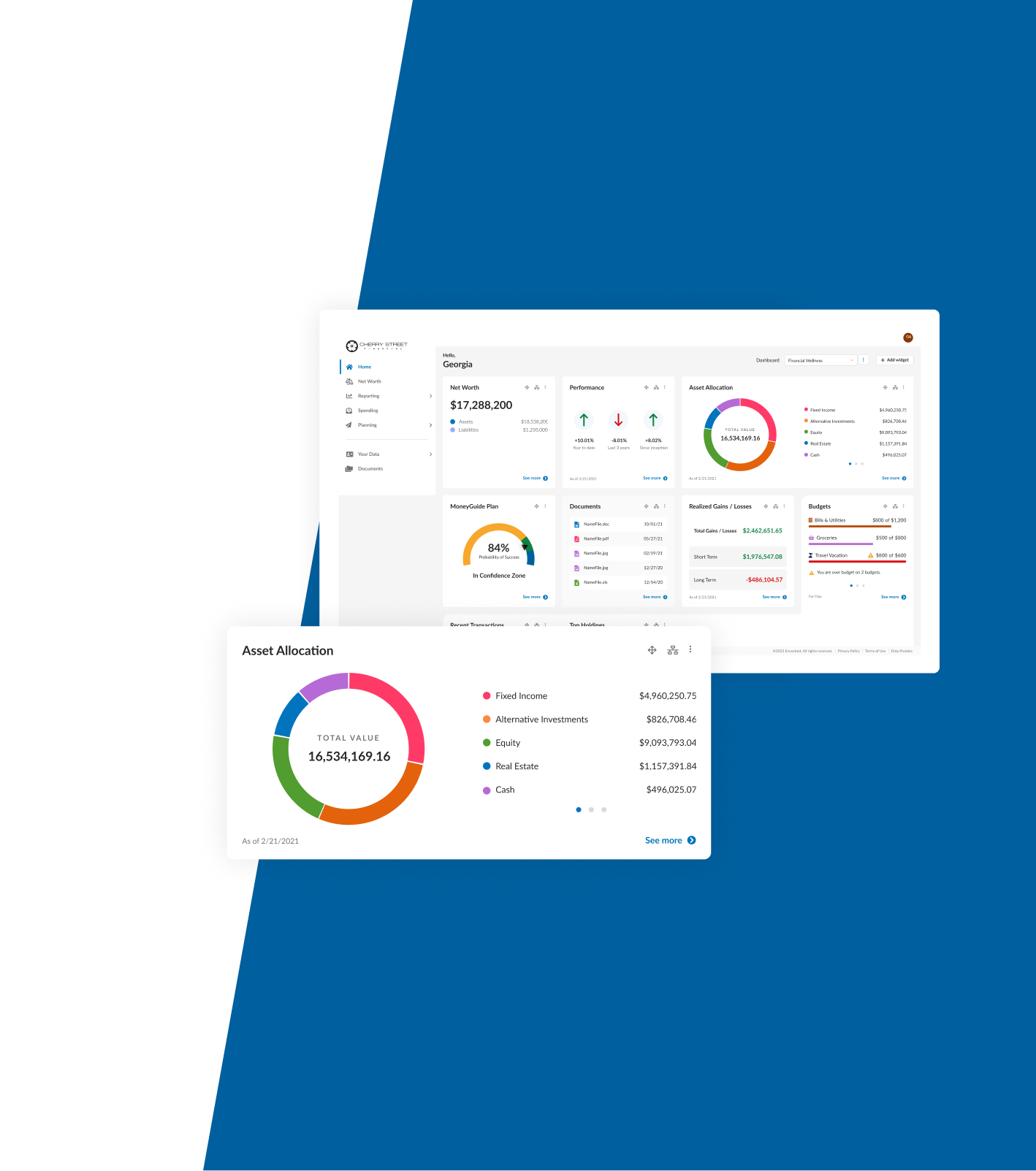Envestnet’s interconnected ecosystem of technology, intelligence, and solutions
FUELED BY DATA
Powered by aggregated data of unrivaled quality, depth, and breadth, Envestnet’s AI-driven ecosystem unlocks robust insights and opportunities.
- 1/3of all U.S. advisors
- $6.5T+in assets
- 20M+investor accounts
- 19K+data sources
- 800~asset management partners
- 44M+paid users
As of December 31, 2024. Includes accounts/assets under management, administration, and subscription arrangements.
TECHNOLOGY
Tap into the power of Envestnet's ecosystem with technology that's
Experience the transformative power of Envestnet’s financial wellness ecosystem
Connect with Us



